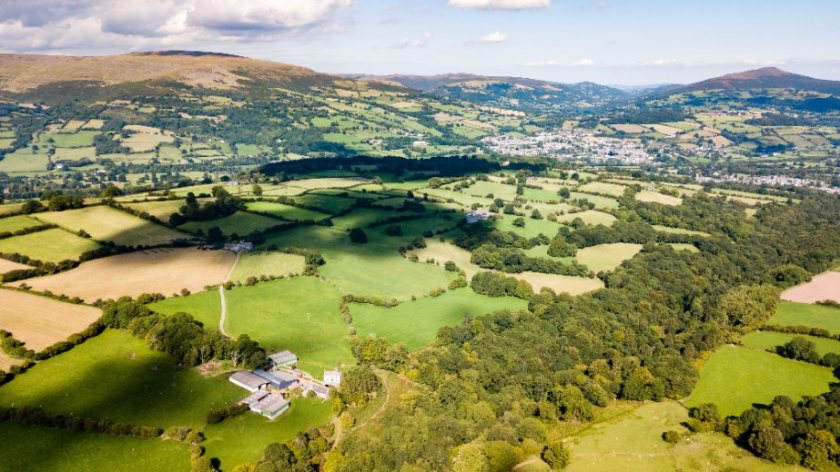
Farmers have given a cautious welcome to a Welsh government decision to scale back tree planting plans on prime agricultural land in the Tywi Valley.
In February, Covid memorial woodlands were announced for three separate sites, including a section of farmland at Brownhill in Carmarthenshire's Tywi Valley.
The plans involve mass tree planting, sparking fears among local people that valuable agricultural land for food production would be lost.
Recently, the Welsh government decided to scale back the plans by preserving around 50 acres of the more productive farmland at the site.
The Farmers' Union of Wales (FUW) cautiously welcomed the move, adding that the loss of around 180 acres of farmland to afforestation still represented 'a major blow'.
FUW deputy president Ian Rickman, who farms nearby, said: “The suspicion is that the government thought branding the project as a ‘Covid memorial woodland’ would diffuse objections to the loss of valuable farmland at a time when we have seen lots of land in the area purchased by outside buyers for tree planting.
"People saw through that, and anger about the plan was acute not only locally but across Wales."
Last year saw an approximate six-fold increase in applications to plant woodland in Wales compared with previous years.
Around 75% of applications were made by individuals or bodies based outside Wales, which had purchased Welsh farmland.
Mr Rickman said: "A lot of those applications related to planting around east Carmarthenshire and southwest Powys, so to lose yet more land in the same area under a plan instigated by our own government still represents a blow.”
The Welsh government and NRW must learn lessons from this and other experiences around Wales, he added.
At the other end of Wales, at Tynmynydd on Anglesey, the Welsh government outbid local farmers by paying £14,000/acre for prime agricultural land to plant trees.
This was land which should continue to be used for growing food, especially at a time of global food shortages, Mr Rickman said.
"If we are to plant more trees we need to focus on keeping it in local ownership by helping our farmers do so in a way which works alongside food production and agriculture.
"The Welsh government should not be encouraging, or themselves implementing, blanket afforestation policies,” he said.
It comes after NFU Cymru recently said that government ambitions to increase tree cover in Wales should not hinder farmers’ ability to produce food.
The union said farmers were best placed to identify areas for planting at an appropriate scale on less productive land that was unlikely to hinder food production.
